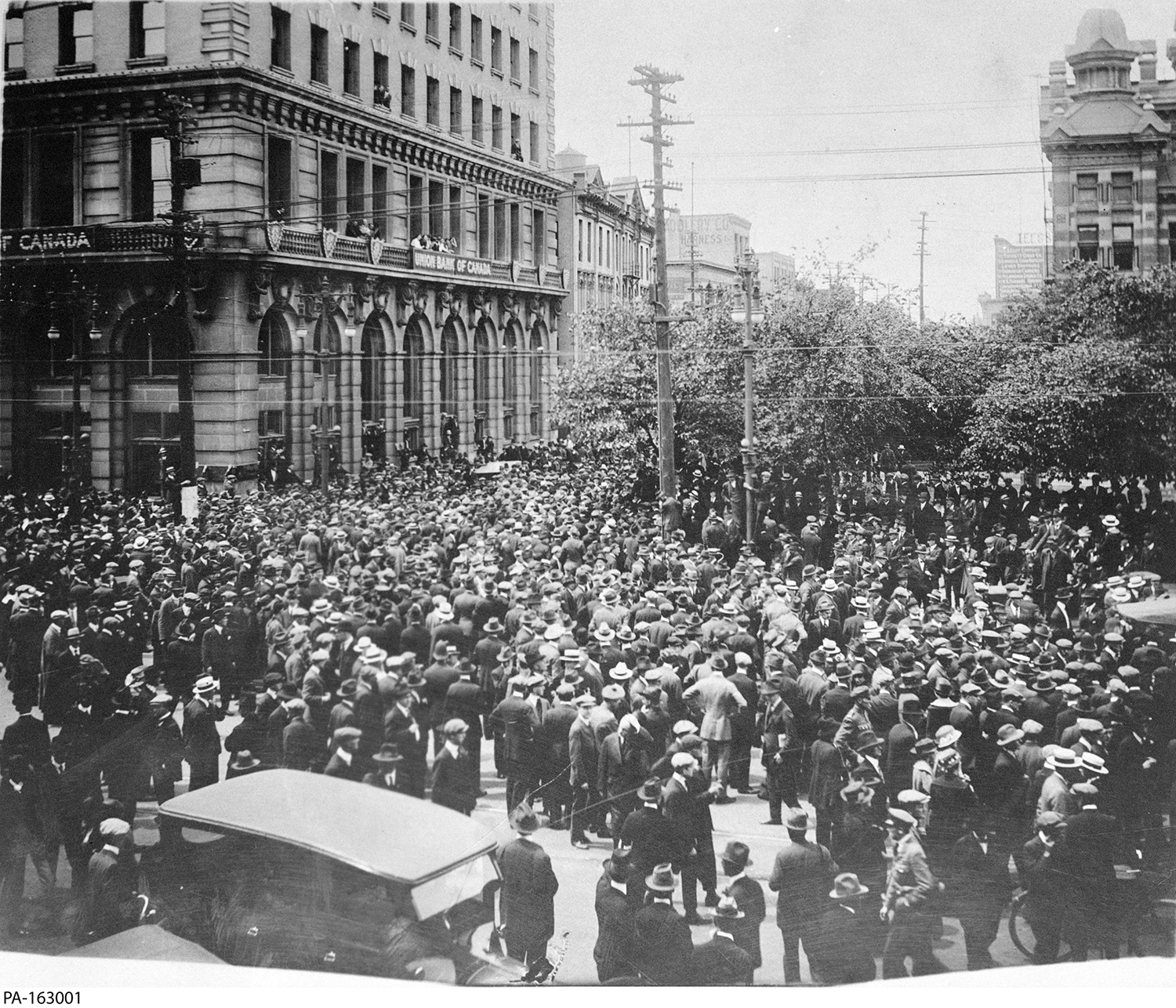The Winnipeg General Strike of 1919 led to the creation of several notably abusive federal laws to restrict civil liberties. Section 41 of the Immigration Act, which dates from June 1919, allowed officials to deport any alien or naturalized citizen who advocated the overthrow of the government by force. Hundreds of trade unionists and communists were eventually expelled from the country. In 1931-32 alone, deportations peaked at 7,034. Canada’s population was 2,307,525 in 1931, and 23 percent of its residents were in danger of being deported under the provisions of the Immigration Act.
In addition, the government created section 98 of the Criminal Code, which targeted “unlawful associations” and characterized their members as anyone who had attended their meetings, spoken out in favour of them, or distributed their literature. The property of a proscribed organization could be seized by the police without a warrant and forfeited to the Crown, and any person who claimed to represent the group was guilty by association. In effect, section 98 banned the Communist Party in Canada, a move that made it the only democracy in the world to do so at the time. Three prosecutions emerged from section 98 before its repeal in 1936, the most famous being the 1931 trials of eight members of the Communist Party. The Ontario Court of Appeal upheld the conviction as well as the finding that the Communist Party was an unlawful association as defined under Section 98.
Further Reading
- Berger, Thomas R. Fragile Freedoms: Human Rights and Dissent in Canada. 2nd ed. Toronto: Irwin, 1982.
- Kealey, Greg. “State Repression of Labour and the Left in Canada, 1914-20: The Impact of the First World War.” Canadian Historical Review 73, 3 (1992): 281-314.
- Whitaker, Reg, Gregory S. Kealey, and Andrew Parnaby. Secret Service: Political Policing in Canada from the Fenians to Fortress America. Toronto: University of Toronto Press, 2012.

